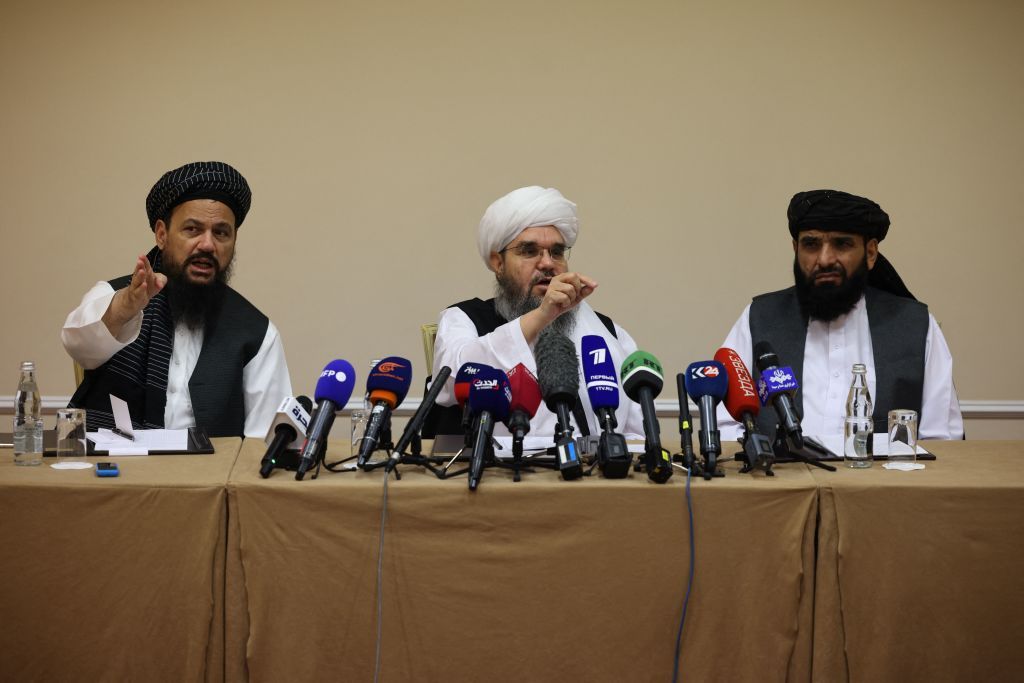Russia is considering removing the Taliban’s designation as a terrorist organization, with the final decision to be made by the Kremlin. The Russian Foreign Ministry stated that they cooperate with the Taliban on anti-terrorism issues regularly and that there is no special news in this regard. The Taliban, founded in the early 1990s, took over Afghanistan in 1996 and enforced strict Islamic law that persecuted women, political opponents, and religious minorities. They provided safe-haven for the Al-Qaeda leadership after the 9/11 attacks on the U.S. but were ousted from power in 2001 after the U.S. invasion. Since returning to power in 2021, reports indicate that about 1,000 civilians have been killed under their rule.
Recently, the Taliban issued a strong condemnation of a terrorist attack in Moscow, calling it a blatant violation of human standards. This statement came in response to a terrorist attack at Moscow’s Crocus City Hall on March 22, which was claimed by the Islamic State. The Taliban’s participation in the “Russia – Islamic World: Kazan Forum” scheduled for May signifies a growing cooperation between Russia and the Taliban. The move to potentially remove the Taliban’s terrorist designation raises concerns about Russia’s stance on terrorism and its relationship with extremist groups.
The Taliban’s history of human rights abuses, including the brutal persecution of women, political opponents, and religious minorities, raises questions about the implications of Russia’s potential decision. By removing the terrorist designation, Russia may be signaling a shift in its foreign policy towards the Taliban, which could have broader implications for regional security and counter-terrorism efforts. The Taliban’s track record of providing sanctuary for extremist groups and their recent return to power in Afghanistan add complexity to the situation and highlight the need for a nuanced approach to dealing with such groups.
The invitation of the Taliban to participate in the Kazan Forum and the reported cooperation between Russia and the Taliban on anti-terrorism issues raise concerns about the alignment of interests between the two parties. The potential removal of the Taliban’s terrorist designation could signal a normalization of relations between Russia and the Taliban, which could have implications for regional stability and counter-terrorism efforts. The international community will be closely watching how Russia’s decision on this issue unfolds and its impact on the broader fight against terrorism.
Given the Taliban’s history of violence and human rights abuses, the potential removal of their terrorist designation is likely to draw criticism from Western powers and human rights organizations. The Taliban’s record of supporting extremist groups and their oppressive rule in Afghanistan raise concerns about the implications of Russia’s decision. The move could have implications for global efforts to combat terrorism and extremist ideologies, as well as for regional security dynamics in Central Asia and the Middle East. It remains to be seen how Russia’s decision will be received by the international community and what impact it will have on the fight against terrorism in the region.
In conclusion, Russia’s potential decision to remove the Taliban’s terrorist designation is a contentious issue that raises questions about the country’s stance on terrorism, its relationship with extremist groups, and its foreign policy objectives. The decision could have significant implications for regional security, counter-terrorism efforts, and the broader fight against extremism. The international community’s response to Russia’s decision and its impact on efforts to combat terrorism and promote human rights will be closely watched. It is essential for all stakeholders to engage in dialogue and cooperation to address the complex challenges posed by extremist groups like the Taliban and to work towards a more secure and stable world.


